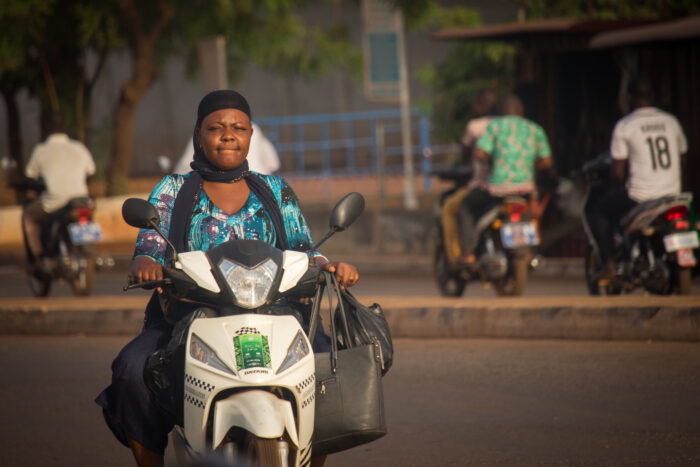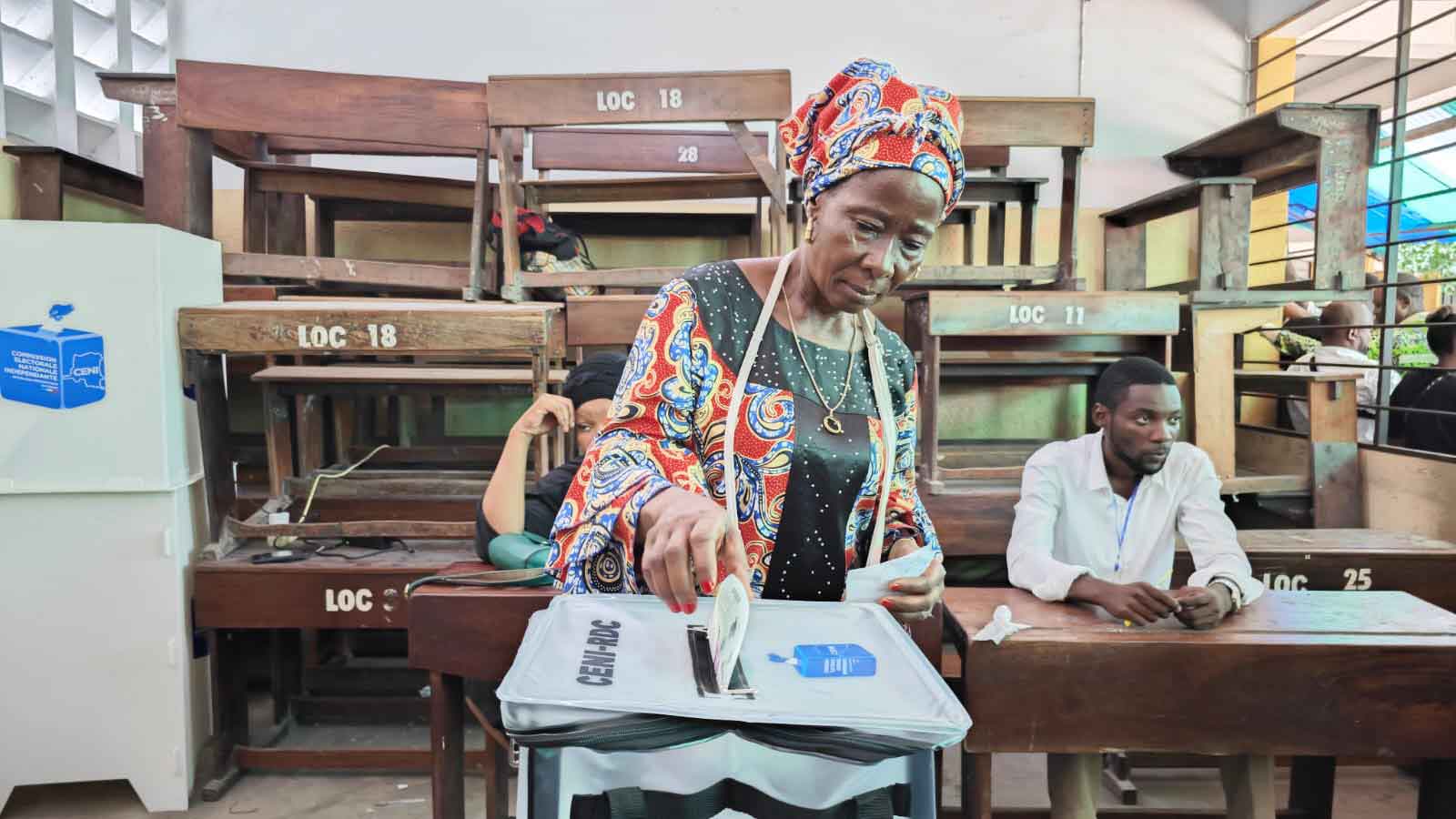
The Bawku conflict in Ghana is a protracted strife related to land ownership rights and chieftaincy between the Kusasis and Mamprusis, two major ethnic groups in the northeast of the country. Based on fieldwork conducted in Bawku in January 2023 as part of the HSRC’s The Imprint of Education study, Young African Research Fellow Emmanuel Ampomah discusses the effects of the conflict on the livelihoods of young people. He is also from Ghana.
News of inter-ethnic clashes in Bawku resurfaced in public debates and media discussions across Ghana in December 2022. Media outlets reported 18 deaths and hundreds fleeing the area. The eruption of inter-communal violence is not confined to Bawku, as small-scale, localised conflicts occur in many communities across Africa, especially in rural areas. Although these conflicts rarely gain the attention they deserve, their impact on livelihoods, peace and security is indisputable.
The conflict in Bawku, as in several African countries, is between two or more so-called identity groups. These socially constructed groups form the basis for organising combatants and defining enemies from other groups. Localised conflicts may occur between ethnic, territorial, religious and other groups.
Sadly, the Bawku conflict has become protracted in a country that is, paradoxically, considered a beacon of peace and democracy in West Africa. The dispute has over the years crippled socio-economic development in the region and created widespread fear and insecurity. The impact of the conflict on the already precarious livelihoods of youth in the area is particularly significant. Based on fieldwork conducted in Bawku in January 2023 as part of the HSRC’s The Imprint of Education study, this article discusses the effects of the conflict on the income-generating abilities and livelihood prospects of young people.
Why are the Mamprusis and Kusasis fighting in Bawku?
The Bawku conflict emanates from a number of issues pertaining to claims of land ownership rights and chieftaincy between the two major ethnic groups, Kusasis and Mamprusis, in the north-eastern corner of Ghana. While the genesis of the conflict can be traced to the meddling of colonial powers in the internal affairs of the ethnic groups, it was not until 1957 that the crisis erupted. Although localised, there have been violent but sporadic and spontaneous confrontations since 1957. More recent clashes, however, have been prolonged and deadly, with combatants possessing sophisticated weapons.
The government’s attempts at resolving the conflict through peacekeeping operations and the use of law courts have achieved limited success. The inability of stakeholders to resolve the conflict comes at a high cost to the security and livelihoods of residents in Bawku.
Economic implications of the conflict
The conflict has adversely affected local economic development and livelihoods in Bawku, deepening poverty among young people, who make up more than 93,000 of the area’s population of 119,000.
One of the young men interviewed during the fieldwork indicated that he had been unemployed for more than two years although he had a master’s degree from abroad. With limited employment prospects in his community, he and his family depended on his ageing mother, who was a trader.
His story echoed the experiences of several other young people interviewed. Their ability to meet markers of adulthood such as becoming independent from parents, finding work, getting married and having children had been delayed or eroded due to the conflict. Some young people had opted to migrate to southern Ghana in search of greener pastures.
Effect on small business
The impact of the conflict on local economic activities was also evident in the deleterious conditions under which small-scale, non-farm enterprises had to operate. Economic activities in Bawku have increasingly diversified, with young people embracing fewer capital- and labour-intensive entrepreneurial initiatives. However, these ventures are not spared during conflicts, which have seen stores and properties looted and burnt. In this way, criminal activities during periods of unrest diminish the gains made by young entrepreneurs during periods of peace.
For example, a young female teacher who owned an interior design store said in an interview that her store had been ransacked in the December 2022 conflict, leading to a loss of her capital. Over the same period, a store belonging to one of the community’s well-known young men had been burnt down. This highlights how the conflict affects the sustainability of businesses owned by young people in the area.
Restricted movement
At the time of the fieldwork visit, the mobility of young men in the community had been severely constrained, depending on the ethnic group they were affiliated with. Young Kusasi males could not easily travel to Mamprusi-dominated areas for work and vice-versa. This immense polarisation and segregation in the community also affects young people’s pursuit of livelihood opportunities.
A young photographer, for example, expressed his frustration with impeded mobility due to the conflict. Like other young people working in the fashion and entertainment industry in this area, his income had been gravely compromised.
In addition to the immediate effect on livelihoods, the deep-rooted division has long-term implications for access to education and other formal and informal training and skills development. The conflict has led to consistent school closures and a shortage of qualified teachers, both of which limit students’ access to quality education and increase their future risk of poverty.
Banning the okada
Curfews and other conflict management mechanisms implemented by successive governments have equally undermined and jeopardised young people’s income-generating prospects. For instance, banning the use of tricycles and restricting the free use of motorcycles, commonly known as okada, during recent disturbances stifled the ability of young commercial motorcycle riders to earn an income.
Considering the “okada economy” in Ghana and the financial viability of the business for young men – especially those providing delivery services – these restrictions do not bode well for the many young people who depend on the sector for a living. Similarly, curfews imposed during the conflict undermined night-time economic activities in the area. This, in turn, shrunk livelihood options for young people.
The way forward
The dispute aggravated pre-existing employment and livelihood vulnerabilities in the area by diminishing employment opportunities. It also eroded young people’s access to long-term educational, vocational and technical training. Young people who are unable to develop the required resilience to survive these conditions may be drawn into illicit economic activities, which may spark further social instability.
Consequently, a successful resolution of the dispute is needed to improve livelihood conditions for young people in Bawku. The government should therefore prioritise proactive conflict prevention and resolution interventions. Such initiatives ought to involve residents. The government also needs to ensure justice and accountability for crimes committed during past confrontations. Accordingly, businesses affected by the conflict should be duly compensated.
It would also be useful for the government and other stakeholders, particularly NGOs, to provide seed funding and other forms of financial support for small-scale businesses in the area.
Scholarships and opportunities for vocational and technical training should be provided for young people, especially young males who are at risk of being recruited by the factions. Ideally, these should afford young people in Bawku the opportunity to access quality pre-tertiary and tertiary education in other parts of Ghana.
Through exposure to other cultures, young people from the area may come to terms with the need for intercultural co-existence, which will have long-term implications for peace and livelihood improvement in the area.
Author: Emmanuel Ampomah, a Young African Research Fellow in the HSRC’s Equitable Education and Economies division, is from Ghana.

